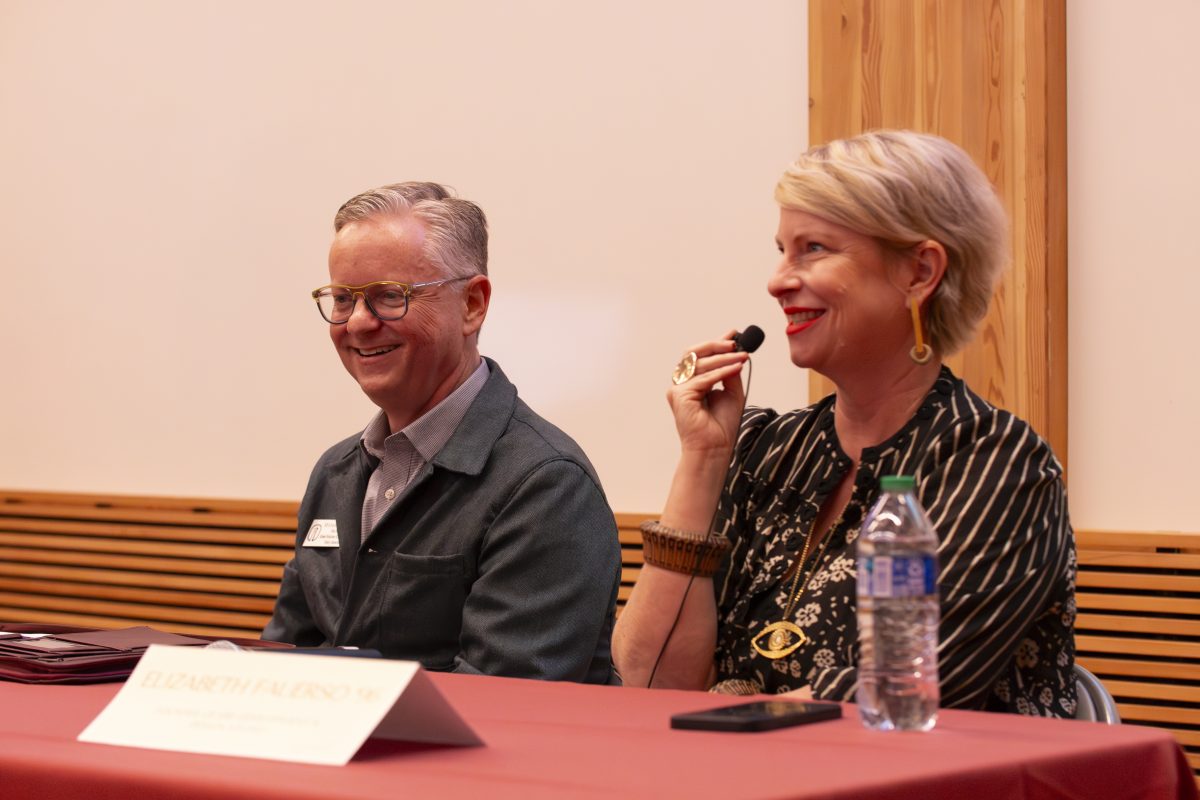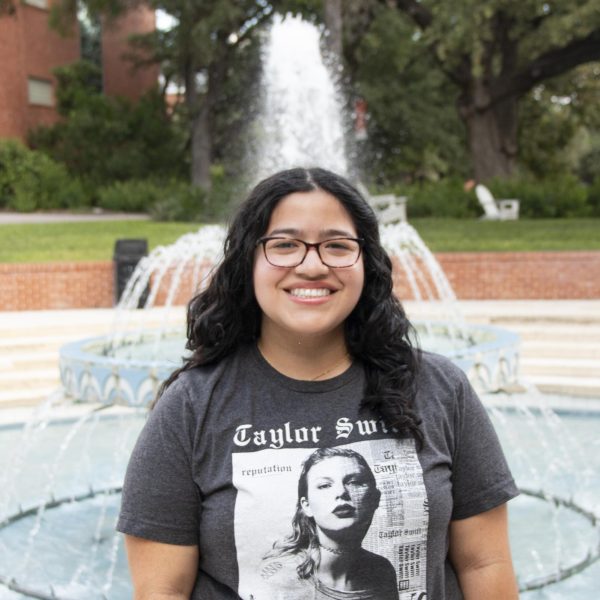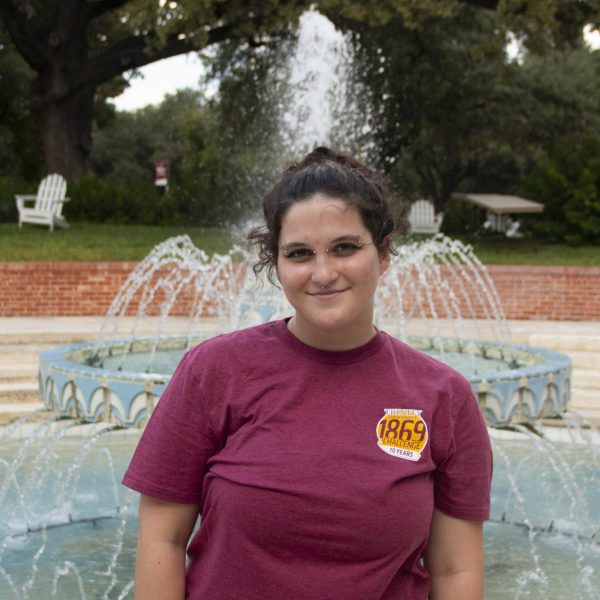Current students, alumni and faculty gathered in Mabee Auditorium for the “What can you do with a humanities degree?” panel during alumni weekend.
Moderated by Kyle Gillette, acting dean for the school of arts and humanities, the event featured Trinity alumni Mike Bacon ‘89, the director of alumni relations, and Elizabeth Fauerso ‘96, the founder of her consultancy, EBF Development and Design Studio which specializes in creating spaces with thoughtfulness and care. Humanities Day allowed students to ask their questions during a question and answer session at the end.
On Friday, Oct. 27, the Humanities Collective and the Center for Experiential Learning and Career Success (CELCS) hosted Humanities Day to combat negative stigma regarding humanities degrees. Claudia Stokes, English professor and co-director of the Humanities Collective, sees Humanities Day as a way for students to be reminded of the professional and personal value a humanities degree has.
“We often have this joke about how if we graduate with a history degree, all you can do is flip burgers, so the object of Humanities Day is to counter those erroneous notions and to communicate to students how valuable a humanities degree can be,” Stokes said.Both Fauerso and Bacon stated that they were drawn to a degree in the humanities because they were encouraged to follow their passions. Fauerso mentioned that society causes students to focus on what comes after when they are working towards their degrees.
“We think about everything as a rotational stepping stone, versus the value and the space and the time to explore and understand and respect a process that doesn’t have a clearly defined outcome,” Fauerso said.
Reese Gilley, first-year history major, came to the Humanities Day panel to identify the opportunities available beyond academic life. Gilley explained that she wanted to know more about the community within the humanities department.
“I was really interested to look at the opportunities outside of my major and just how majoring in history would help me outside of academics,” Gilley said.
During the Q&A portion, Chris Juginger, junior studying classics, museum studies and anthropology, asked about any regrets the panelists had regarding the classes they chose to take at Trinity. Both panelists wished they had diversified the course load they took. Bacon emphasized that taking more difficult classes would have allowed him to learn skills that he needed in his career sooner.
“I overplayed my hand and the things I loved, and I probably could have taken a few more courses in areas that would have been more difficult for me. It would have probably negatively impacted my grade point [average], but once I got out of Trinity, nobody cared about my grade point [average],” Bacon said.
Juginger went to Humanities Day to see how alumni and students interact in one space. She emphasized that she enjoyed the panel discussion and felt connected to the alumni speaking about their degree paths.
“We should be doing our absolute best as students to not segregate ourselves into humanities, STEM, pre-med, pre-law, whatnot,” Juginger said. “We are students at Trinity and that will give us the best leg forward in our professional and private lives moving forward.”
While humanities degrees can be seen as less valuable by people outside of the field, the hope is that one day there will no longer be a need to reaffirm students and family members about the value of a humanities degree. Fauerso mentioned that students should specialize in something they love.
“Get grounded in your passion and what you’re doing and then bring it forth and express it without reservation or hesitation because the value is there,” Fauerso said.









